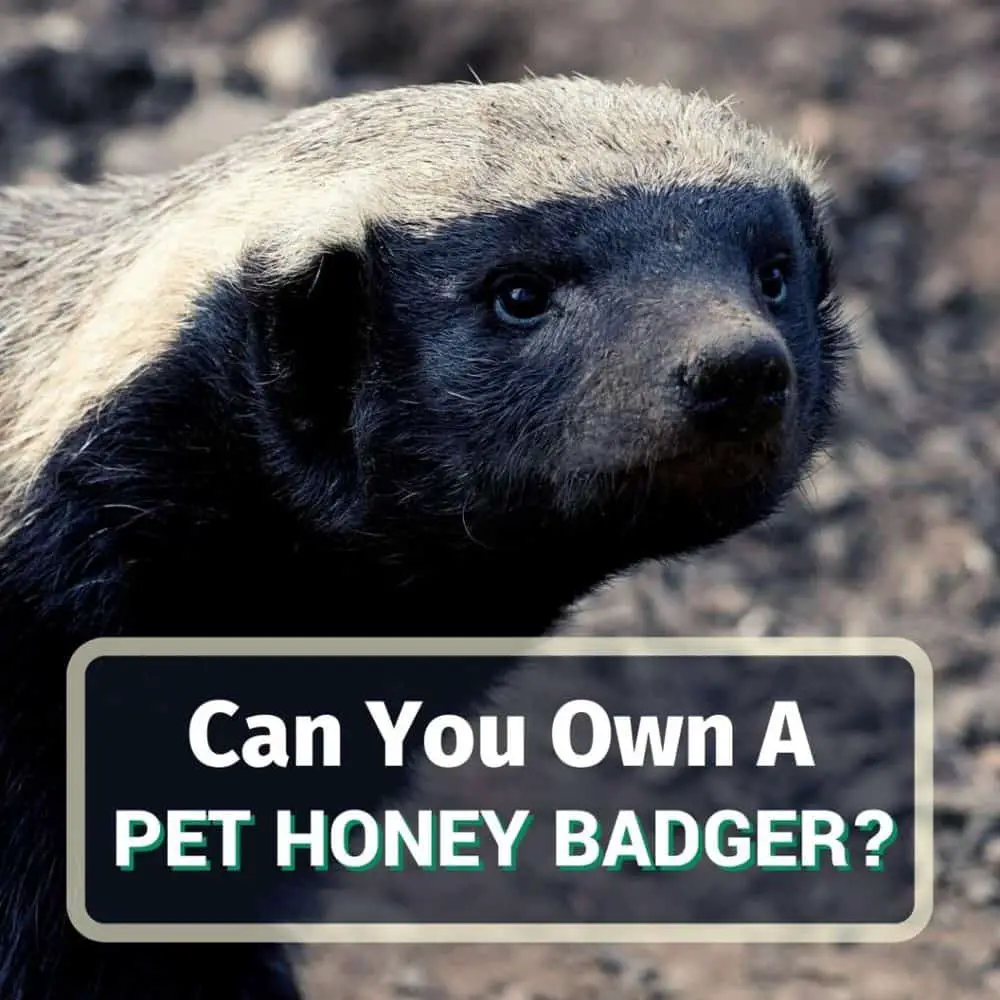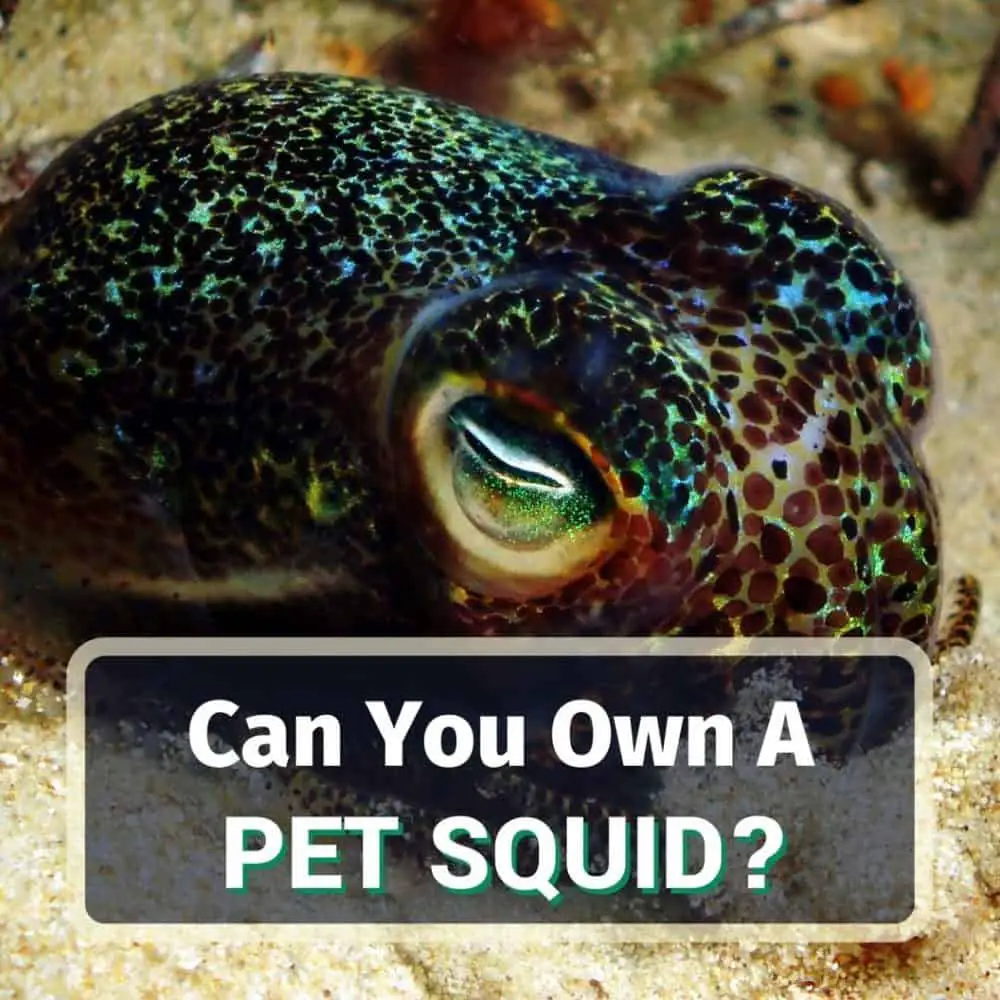Do lynx make good pets? No, they are a wild species that should remain in its natural habitat. Also, some people do keep pet lynx, the hurdles are huge and in many cases, the animal doesn’t live a happy life. In this article, you will learn why you should opt for a cat or dog instead.
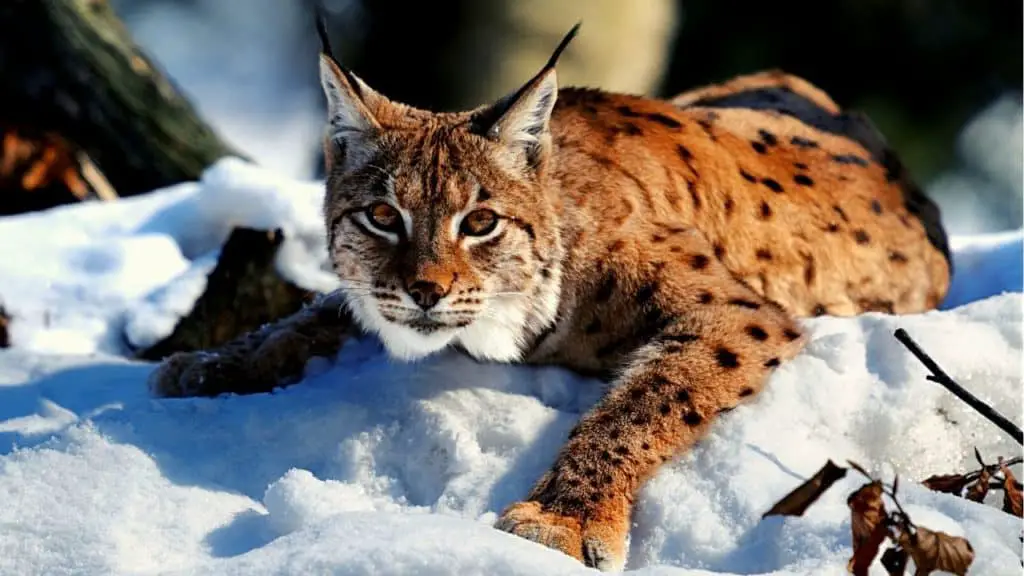
Is It Legal to Own a Pet Lynx Cat?
Whether or not it’s legal to own an exotic pet like a lynx depends on which state you’re from:
Alabama, Nevada, North Carolina, and Wisconsin have no laws about owning wild animals, like lynx, as pets.
These 13 states require a state permit for private individuals to own a big cat like a lynx:
- Idaho
- Montana
- North Dakota
- South Dakota
- Arizona
- Oklahoma
- Texas
- Missouri
- Mississippi
- Indiana
- Pennsylvania
- Maine
- Delaware
These states ban private ownership of big cats like lynx except for commercial exhibitors:
- California
- Utah
- Wyoming
- Colorado
- New Mexico
- Nebraska
- Kansas
- Minnesota
- Iowa
- Arkansas
- Illinois
- Michigan (Michigan considers them “threatened,” so you cannot buy or sell them from the wild)
- Kentucky
- Tennessee
- Ohio
- West Virginia
- South Carolina
- Georgia
- Florida
- Vermont
- New Hampshire
- Massachusetts
- Connecticut
- Rhode Island
- New Jersey
- Maryland
- New York
- Virginia
These five states have a complete private possession ban for big cats like lynx:
- Washington
- Oregon
- Alaska
- Hawaii
- Louisiana
If owning a lynx is legal where you live, you will probably have to apply for a license to own one and will have to start the paperwork months in advance of owning a lynx.
However, you will not be able to own an Iberian lynx since it is the world’s most endangered cat and covered by the Endangered Species Act.
Lynx Cats Aren’t Domesticated
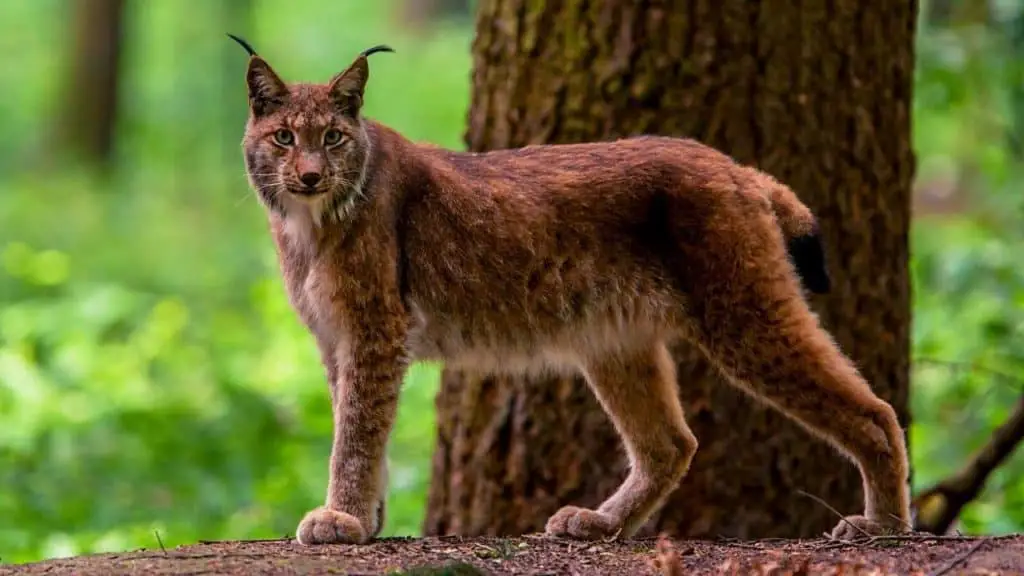
Lynx cats, like caracals, ocelots and servals, have many traits that don’t lend themselves to easy domestication without breeding them with domesticated cats:
- They don’t have a pleasant disposition: Lynx can be dangerous for humans to try to domesticate and will attack if cornered or scared.
- They’re prey-driven carnivores: Family pets could be in danger of becoming meals.
- They’re solitary creatures: Lynx lack the herd or pack dynamics that allow humans to establish a position of dominance. They only come together with other lynx for breeding. Since they prefer to be alone, they don’t care to let humans into their social structure.
Pet Lynx May Attack People or Animals
Lynx cats usually avoid people, and attacks are not among their usual behavior. However, they will defend themselves if they feel like they’re being cornered and may attack a human if they feel threatened.
If a child corners a lynx to pet it and the lynx isn’t interested, an attack is possible.
When a lynx encounters another animal, it’s likely to see it as prey. Thus, if you have other animals in your home, they could be in danger of becoming a meal.
Additionally, if a pet lynx gets loose and can’t find wild animals to eat in a city setting, it’s likely to seek out pets for a meal.
Lynx Follow a Strict Carnivorous Diet
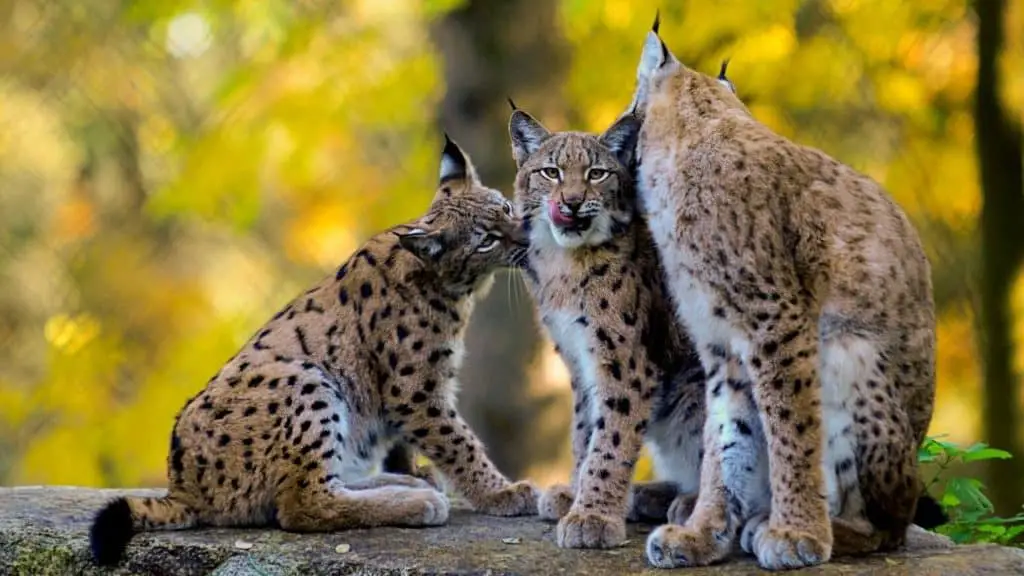
In the wild, lynx stalk and ambush their prey. They feed on deer, pigs, beavers, rabbits, turkeys, and other wild animals. Snowshoe hares are the most important food for Canada lynx. However, they prey on other small animals like mice, squirrels, ptarmigan, and voles when hares are scarce.
Keeping up their dietary needs can be both challenging and expensive. Zookeepers at the San Diego Zoo offer their lynx nutritionally-complete ground meat, beef hearts, rib bones, dead rabbits, or dead rats daily.
When choosing the type of lynx you want, keep in mind that feeding costs are based on lynx size. For example, a smaller Canada lynx would eat one can of Zupreem Feline Diet per day vs. the larger Eurasian lynx eating 2-3 cans per day. That’s around $110 per month vs. $325 per month.
They Have Demanding Housing Needs
In the wild, lynx like the Canada lynx have a home range that is 7.5-10.5 square miles minimum and 124 square kilometers maximum. Such a large territory is necessary to secure enough food, especially if food is scarce.
However, the size of a wild lynx’s home range does not inform how much space they need in captivity where food is abundant.
Many people keep lynx as a house pet indoors. However, all lynx breeds appreciate being able to spend time outdoors.
Outdoor housing recommendations include:
- Enclosure fencing: Fencing should be strong enough to support the cat’s weight and be set in concrete so the cat cannot tunnel underneath. The mesh size should be small so that the cat cannot get tangled in it and people can’t put their fingers through it.
- Shelter: Lynx cats need a bare minimum of 13 feet long x 6.5 feet wide x 8.2 feet high shelter space. However, larger lynx, like the Eurasian lynx, will need more space. The shelter should have ventilation and draining. It also needs at least one draught-free den with sufficient bedding for the weather.
- Space to roam: A cat accustomed to roaming will not be content confined to such a small shelter, so it’s important to offer them more than just a shelter.
- Escape prevention: There should be double gates with around six square feet separating the two gates, which will minimize the chance of escape. Both gates should have a padlock.
- Lack of public access: The public should not be able to access the lynx’s enclosure, which might require a secondary fence. You should also post warning signs for the public.
Even in zoos that provide a reasonable space, you will see lynx and other cats pacing from the stress of being in such a small space. A space that allows them to run to burn off energy can help alleviate some of this stress.
You May Be Able to Find Pet Lynx Cats for Sale
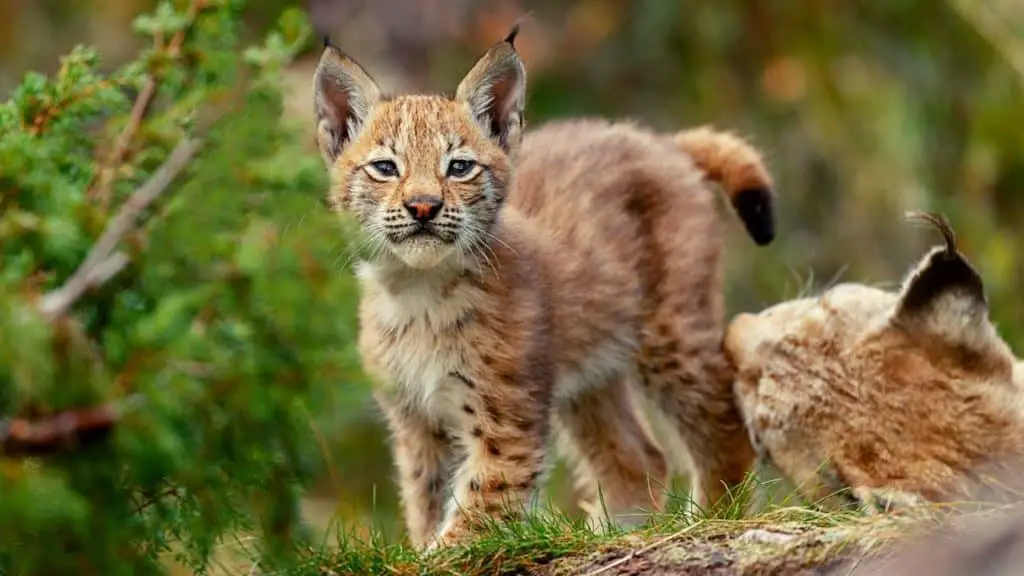
Where can you buy a lynx kitten? You can’t find them in your local pet and probably not even from a local breeder. So, are there any lynx babies for sale anywhere? Yes, it’s possible to find some lynx varieties like Canadian lynx, Carpathian lynx, Eurasian lynx, and bobcats (a type of lynx) for sale from a few online sources.
You will either need to go pick it up personally (probably from another state) or risk the stress of air delivery (which can sometimes lead to health issues or death).
What’s the price for lynx? If you want to buy a lynx, you should expect them to cost thousands of dollars, with a price ranging from $2500 to $7500 or more. However, these are wild animals, not pets. To lead happy, healthy lives, they need to be in the wild or a proper enclosure that only a well-funded zoo can create.
Alternative: The Desert Lynx
If you’re fixated on the idea of having a lynx as a pet, a good compromise could be a desert lynx. Desert lynx cats are a small, domesticated mix of bobcat, Maine coon, Manx, and Pixi bobcats.
Their temperament is family and pet friendly, affectionate, sociable, and independent. You can even train them to walk on a leash. People with cat allergies often seek them out because they have little to no dander, making them non-allergenic.


